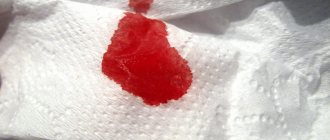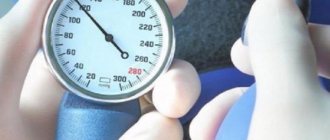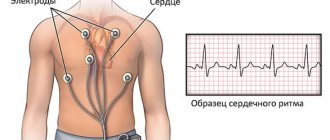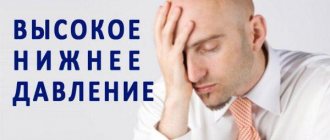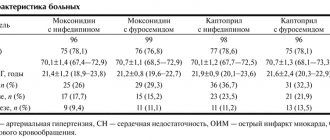27.05.2018
Last modified: August 5, 2021 at 04:42 am
Teachers, medical staff, employees of catering establishments and hazardous industries, and drivers must undergo a medical examination when hired. A medical examination is a nerve-wracking event. In response to stress, blood pressure increases in the body, which creates obstacles to successfully passing the examination and further employment. People suffering from high blood pressure in a stressful situation should know how to quickly lower this indicator.
Factors affecting blood pressure
Blood pressure is influenced by:
- blood viscosity;
- elasticity and resistance of smooth muscles of blood vessels and arteries;
- heart rate;
- the volume of blood passing through the vessels in a certain period of time.
Not all of these factors can be adjusted to lower blood pressure, but there are other reasons why the tonometer needle tends to rise.
Causes of high blood pressure:
- Smoking. Nicotine causes vascular spasms and clogs small capillaries, causing blood pressure to rise sharply and the heart to work harder. It is estimated that after smoking one cigarette, the tonometer readings rise by an average of 20-30 units and remain unchanged for 30 minutes to an hour.
- Not drinking enough. When dehydrated, the blood changes its properties and becomes thick, and the speed of blood flow decreases significantly. In order to compensate for the speed of blood movement, the vessels narrow, the heart begins to work at an accelerated rhythm, which leads to an increase in blood pressure.
- Alcohol consumption. Systematic consumption of alcoholic beverages provokes a persistent increase in blood pressure due to increased tone of the sympathetic nervous system. In people who regularly drink alcohol, systolic pressure (upper) is 9-10 units higher than in non-drinkers of the same age. The tonometer readings are affected by beer, vodka, champagne, red wine, and cognac. Doctors have calculated that after drinking 50 ml of strong alcohol, blood pressure rises for several hours.
- Salt. Consuming excess salt has a detrimental effect on the water-salt balance in the body, thereby causing increased blood pressure. Consuming more than 15 grams of salt per day contributes to the formation of edema and long-term increases in blood pressure.
- Overweight. A body mass index of more than 30 means a person is obese. With an initial degree of obesity, pressure indicators will rise on average by 5 units above normal values, with a body mass index of 35 - by 15-20 units.
- Coffee. The blood pressure of healthy people practically does not change its values after a cup of coffee. However, the body of hypertensive patients reacts to caffeine with a sharp increase in blood pressure.
- Physical exercise. A long walk, a short jog, or a quick climb up several floors of stairs increases the blood pressure monitor readings by 20 units for 30 minutes or more.
- Stress. Nervous experiences are considered one of the main causes of sudden jumps in blood pressure. Adrenaline, whose concentration in the blood increases in response to shock, fear, nervous tension or stress, sharply narrows the lumen of blood vessels and increases blood pressure.
Quick acting remedies
How to quickly lower blood pressure before a medical examination without harm to the body and, in particular, the cardiovascular system? There is an effective option for instantly lowering blood levels - with the help of certain medications.
The table shows a list of antihypertensive medications that have minimal side effects and do not cause significant harm to the body when taken occasionally. These drugs are prescribed for the treatment of early stage hypertension.
| Medication group | Name of the drug | Hypotensive effect |
| ACE inhibitors | Lisinopril. Enalapril. | A decrease in blood pressure is observed an hour after taking the tablet. |
| Calcium channel blockers | Blockalcin. Diacordin. | The desired result occurs very quickly, literally 10 minutes after taking one of these remedies. Medicines not only reduce blood pressure, but also eliminate the manifestation of tachycardia. |
| Angiotensin 2 receptor antagonists | Valsartan. Losartan. | The hypotensive effect is observed an hour after taking the medication. |
As for other drugs prescribed for hypertension, they are not suitable for a single dose. You should especially avoid using:
- Adrenergic blockers.
- Alpha adrenergic agonists (Clonidine).
Such drugs can cause:
- A sharp drop in blood pressure.
- Fainting.
- Vascular collapse.
In addition, doctors warn against the use of combination medications, as they cause increased nighttime diuresis, which prevents a person from fully resting before a medical examination.
Normalization of blood pressure with tablets
If the increase in blood pressure is caused by anxiety, mild sedatives will help:
- Magnesium tablets effectively reduce nervous excitability and prevent an increase in blood pressure. Magnesium works best in combination with vitamin B6.
- Alora is a drug whose action is aimed at reducing anxiety and psycho-emotional stress, relieving spasms. The active ingredient is passion flower extract - a natural component that does not harm the body.
- Menovalen - capsules containing extracts of valerian and lemon balm. Take for nervous overexcitation and anxiety.
- Novo-passit is a herbal preparation in liquid form that effectively combats stress and anxiety.
- Valerian is the most common herbal sedative. The convenient form of release in the form of pills allows you to take valerian under any circumstances, avoiding the persistent characteristic odor.
Important information: Lifestyle changes and home treatment
Reference. The drugs described above have an effect on blood pressure by slowly establishing a person’s psycho-emotional state. It is recommended to start taking sedative medications at least 1 week before the upcoming medical examination.
The following medications will help lower blood pressure quickly:
- Losartan prevents the narrowing of the lumen of blood vessels and helps to lower the tonometer readings after 2-3 hours.
- Lisinopril is a blood pressure lowering drug that also normalizes heartbeat and relieves headaches. Valid for 30 minutes.
- Captopril improves blood flow through the vessels and lowers blood pressure 25-30 minutes after administration.
- Diltiazem normalizes blood pressure and heart rate and begins to act within 10-15 minutes.
Treatment methods with cumulative effect
How to reduce blood pressure before a medical examination? You can normalize its level using:
- Medications.
- Folk remedies.
- Review of diet.
- Lifestyle changes.
Correction with medications
Some medications have the ability to quickly lower high blood pressure.
Approved drugs
| Name | Treatment options |
| Valerian | The medicine contains natural herbal ingredients. It has a mild sedative effect, relaxes and gently normalizes high blood pressure. Course duration is 7 days according to instructions. However, this drug is not suitable for patients with essential hypertension due to its low effectiveness. Although the medicine does not cause side effects, it may slow your heart rate. |
| Corvalol | It is a mild vasodilator and antispasmodic. Slightly reduces blood pressure and prevents hypertensive crises. |
| Magnesium | In combination with vitamin B6 in tablet form, it has a sedative effect. Does not depress the cognitive functions of the body. |
| Tincture of Motherwort or Hawthorn | If there is a rapid jump in blood pressure, you need to take 1 tsp. one of these tinctures (dilute in boiled water). |
Taking medications with a sedative effect effectively eliminates unreasonable fear and normalizes blood counts.
Among other medications, experts recommend:
- Amlodipine (calcium antagonist). Reduces the resistance of blood vessels, thereby returning pressure to normal limits. Take the tablet 30 minutes before the medical examination.
- Felodipine (calcium antagonist). Has the ability to stabilize blood pressure in a short period of time.
- Anaprilin (beta-adrenergic blocker). Helps reduce the minute volume of blood fluid, improves the quality of blood circulation. The drug has a cumulative effect, so it must be taken in a course, since the first signs of a positive result are observed two weeks after the start of treatment.
- Capoten (ACE inhibitor). Reduces upper and lower pressure. The hypotensive effect is observed an hour after taking the tablet.
- Andipal (antispasmodic). The combined medicine not only helps to normalize arterial parameters, but also eliminates the unpleasant symptoms that occur against the background of a jump in arterial blood pressure.
Prohibited drugs
Not all medications with a sedative effect are allowed to be taken before undergoing the commission.
- Neuroleptics.
- Tranquilizers (Sibazon or Diazepam).
Such drugs suppress the functioning of the central nervous system, thereby causing the patient to experience a slowdown in the adequate response to various stimuli.
In addition, such medications cannot:
- Take it for a medical examination.
- Use before medical examinations.
- Drinking at work that requires increased concentration.
Folk remedies
You can stabilize blood pressure before a medical examination not only with medications. If there is an increase in blood pressure, natural herbal remedies will help return blood pressure to normal levels.
| Means | Application and properties |
| Nettle decoction | Measure out 4 tbsp. nettles, pour 250 ml of water. Keep on low heat for 20 minutes, leave for several hours, strain. Drink the resulting amount of decoction an hour before the scheduled medical examination. |
| The healing drink eliminates excessive anxiety and keeps blood counts within normal limits. | |
| Viburnum infusion with honey | You will need 2 tbsp. viburnum berries and honey, 250 ml of water. Grind the viburnum fruits together with honey, add hot water and leave for 2 hours. Strain the resulting drug and consume shortly before going to the clinic. |
| The infusion normalizes the functioning of the cardiovascular system and lowers high blood pressure. | |
| Garlic and onion cocktail | Grind the garlic and onion into a paste, add the juice of one type of fruit or vegetable, such as pomegranate, orange or pineapple, mix, let it brew a little, and then filter. |
| Such cocktail drinks not only normalize blood counts, but also strengthen the immune system. | |
| Herbal collection | You will need 1 tbsp. caraway seeds, valerian, motherwort, rose hips and hawthorn. Pour all the ingredients into a glass of boiling water, leave and take shortly before undergoing a medical examination. |
| Cold bath | Soak your hands in cool water, then rinse your face and place a cloth soaked in cold water on your solar plexus. |
| Apple vinegar | Soak two napkins in vinegar and apply to the soles of your feet for 10 minutes. |
| Lemon juice | Combine 50 ml of lemon juice with 200 ml of mineral water and drink the mixture at one time. |
| Clove infusion | For 1 liter of boiling water you will need 40 clove inflorescences. Bring to a boil, remove from heat, leave, strain. Drink 1 tbsp. 3 times a day. |
Therapists and other highly specialized specialists note that you should not use several traditional recipes at the same time.
The use of more than one prescription option is dangerous due to a sharp drop in pressure, which leads to severe hypotension, which is fraught with extremely serious consequences.
Nutritional Features
Normalizing blood pressure through nutritional correction is effective only in the absence of heart and vascular diseases. For example, when an increase in blood pressure is triggered by excessive anxiety, stress or “white coat” syndrome. Approximately 7 days before the examination, you need to change your diet.
Experts recommend giving preference to the following product category:
| Products | Features of the effect on the body |
| Natural dairy products | In case of pressure surges, the following should be present on the table: yogurt, kefir. They contain many substances that are beneficial for the heart and blood vessels. |
| Fish | Trout. Mackerel. Fish dishes contain many microelements and vitamin substances that have a positive effect on the cardiovascular system. |
| Oatmeal | Consume daily during breakfast. |
| Olive oil | Use instead of sunflower oil. |
| Garlic | Add in small quantities to various dishes. |
| Nuts | Benefits include: hazelnuts, almonds, walnuts. |
| Potato | Potato dishes should be regularly present on the table. This vegetable is a source of potassium. |
| Soybeans | Consume in moderation. |
| Ginger | Add to various teas, tinctures and decoctions. Can be combined with citrus fruits. |
| Beverages | Low fat milk (increases calcium levels in the body). Beetroot juice (a source of many microelements and vitamins), take up to 0.5 liters of juice per day. Hibiscus tea is a natural inhibitor that perfectly eliminates arterial disorders. Cranberry juice normalizes blood pressure and strengthens the immune system. |
ethnoscience
Simple folk methods to normalize blood pressure:
- Cold compress. It is necessary to place a piece of cloth soaked in cold water to the forehead and, if possible, to the feet. This technique allows you to stabilize your blood pressure within 10-20 minutes.
- Washing. A cold morning shower normalizes blood pressure and reduces the likelihood of further increase. In a clinic setting, it is enough to wash your face with cold water several times, wet the back of your head and sit down.
- Peppermint. Strong mint tea works not only from the inside, but also from the outside. To stabilize the pressure, you need to drink and rub mint tea with massage movements into the neck area. Inhaling the vapors of mint essential oil also helps cope with anxiety and pressure surges.
- Sugar and fir. You need to purchase fir oil at the pharmacy and drop 5 drops onto a piece of refined sugar, put it in your mouth and hold until the sugar is completely dissolved. This is a quick and reliable way to normalize blood pressure and calm down.
- Honey and lemon. Dissolve the juice of half a lemon and a tablespoon of honey in a glass of mineral water and drink. For the best effect, it is recommended to lie down or sit down for a while to relax and calm down.
Reference. For people suffering from blood pressure surges, doctors recommend that they always have a bottle of honey-lemon water with them and take a few sips each time an attack begins. This simple and harmless method copes well with high blood pressure and nervous tension.
conclusions
If on the eve of the medical examination there was an increase in blood pressure due to excessive anxiety or excessive consumption of coffee or alcohol or other non-pathological reasons, then there are many ways to return the pressure to the correct state.
Methods are divided into two types: with a cumulative effect and rapid action. The use of several methods will allow you to restore the natural level of blood pressure and prevent it from jumping at the time of the examination.
There are a number of professions that require certain physical training, as well as good health. In such cases, before applying for a job, you will need to undergo a special medical examination. Those who are in good health should not worry about this. But there are few such people. About a third of the world's population suffers from cardiovascular diseases. It is precisely the question they often face: how to lower their blood pressure before the medical board. After all, going through a medical examination with high blood pressure means losing their job.
Nutrition
There are foods that have a beneficial effect on the condition of blood vessels, the nervous system, and, consequently, blood pressure.
Products that lower blood pressure:
- Nuts and seeds are rich in oils and vitamins that strengthen the heart and blood vessels.
- Vegetables in large quantities help normalize blood pressure. Carrots, cucumbers, tomatoes, beets, and potatoes are especially useful for these purposes.
- Flaxseed oil relieves tension in blood vessels and reduces blood pressure.
- Foods rich in calcium (fish, berries, milk and dairy products) and magnesium (cereals, greens, seafood) have a strengthening effect on the heart and blood vessels, preventing pressure surges.
- Water should be drunk in the amount of 30 ml per 1 kg of weight. Both excess and lack of fluid in the body leads to increased blood pressure.
To get the best results, you should give up sugar and high-carbohydrate foods, hot spices, as well as black tea and coffee.
Important. It is necessary to reduce salt intake as much as possible. Doctors do not recommend consuming more than 5 g of salt per day for people suffering from hypertension.
General recommendations before undergoing a medical examination
It is quite possible to reduce blood pressure before undergoing a medical examination if a person follows some tips:
Nutrition
About a month before the expected medical examination, it is necessary to adjust the menu to include various healthy dishes mentioned above.
Especially rich in potassium, for example:
This microelement has a positive effect on the myocardium and helps stabilize blood pressure.
Drinking regime
It is important to adhere to the daily fluid intake: drink at least 1.5 liters of water daily.
With insufficient fluid intake, there is an increase in the level of salt in the body, which causes a surge in pressure.
Harmful addictions
2 months before the medical examination you should give up alcoholic beverages and cigarettes. Instead, introduce more vegetables, fruits and freshly prepared juices into your diet.
Rest mode
If a medical commission is appointed:
| For daytime | For morning time |
| Before passing it, be sure to set aside a couple of hours for daytime sleep. | You need to go to bed no later than 11 pm so that the duration of night sleep is at least 8 hours. |
Chronic lack of sleep is one of the causes of hypertension, which can cause an exacerbation of the disease (hypertensive crisis).
Meditation
Meditation has a beneficial effect on blood pressure levels.
Before the medical examination, you should try to relax, concentrate on pleasant memories, and do a session of yoga or breathing exercises.
Acupressure
- Massage the biologically active point, which is located below the earlobe behind the auricle. Press on the desired point, and then slide your finger along the skin towards the collarbone.
- For 1 minute, press on the point located between the eyebrows.
You need to perform 10-15 movements.
Massage
An effective way to reduce tension, normalize pulse and lower blood pressure is acupressure self-massage. A massage session normalizes the condition for 30-60 minutes.
Important information: Diagnosis of hypertension
Reflex points for self-massage:
- Massage the points located 4 fingers below the kneecap at the same time for 5 minutes.
- On the neck below the back of the head there are two symmetrical notches on either side of the spine. It is necessary to apply pressure on these points with the pads of three fingers for 10 seconds. Repeat 3 times.
- Behind the ear there is a dimple near the corner of the jaw. This point must be massaged for 3 minutes.
- When the arm is bent at a right angle, a fold is formed in the bend zone. The point at the end of the fold on the outside must be massaged for 1 minute, first on one hand, then on the other.
- On the posterior midline of the head, 3 cm above the lower border of the scalp, there is another point. It must be massaged for 1-2 minutes in a sitting position.
- When you flex your toes, a dimple is formed in the middle of the foot. Massage this area for 1 minute, first on one leg, then on the other leg.
Before the massage, you need to warm your hands by vigorously rubbing them together. The pressure should not be too intense and cause discomfort.
Breathing exercises
Breathing exercises reduce blood pressure by relaxing the body and saturating cells with oxygen. All exercises must be performed standing with your feet shoulder-width apart.
Set of exercises:
- As you inhale, clench your hands into fists, and as you exhale, unclench your fingers.
- Place your fists on your waist. As you inhale, lower your hands, unclenching your fingers. As you exhale, return your arms to their original position.
- As you inhale, smoothly turn your head to the left, as you exhale, turn your head to the right. As you exhale, tense your abdominal muscles.
- As you inhale, tilt your body forward, leaving your neck and arms relaxed, and as you exhale, return to the starting position.
- Stretch your arms out to the sides, parallel to the floor, with your palms facing away from you. As you inhale, clench your fists, while exhaling, unclench your fingers.
Each exercise must be repeated 5-6 times, inhaling and exhaling through the nose.
What does the surgeon check?
If most people perceive the upcoming examination by a therapist calmly, then when going to see a surgeon, many are nervous. In fact, there is no need to worry, nothing terrible will happen in the doctor’s office. The examination is carried out in almost the same way as with a therapist, the difference is that surgeons look for other pathologies. The appointment begins with a conversation, asking about general health, complaints, symptoms, previous illnesses and chronic diseases. Then the surgeon will most likely ask you to undress from the waist up and take off your socks. The doctor will examine the skin to identify pathological formations on it, feel the abdomen, subcutaneous lymph nodes, check the legs for swelling and varicose veins, and determine joint mobility.
Urgent change in pressure readings
The following techniques will help to quickly lower blood pressure without the use of medications:
- Take a warm bath (water temperature no higher than 37°C) with the addition of a few drops of soothing and relaxing essential oil (sage, bergamot, mint, lavender, geranium, frankincense). Instead of aromatic oils, you can use regular salt. The session lasts 10-15 minutes.
- Artificially slow down breathing: take a deep breath, holding your breath for 2 seconds, exhale slowly, holding your breath for 3-6 seconds. Then breathe for a minute at a normal pace and repeat. Breathe through your stomach. Over 3-4 laps, the pressure decreases by 10-20 units.
- Rub your ears for redness. For 3 minutes you need to rub your ears with random movements. This method quickly helps reduce blood pressure by 10-20 units.
other methods
If hypertension is not at an advanced stage, and also if there is no desire to poison the body with medications, you can resort to proven unconventional methods of getting rid of this disease. Let's look at the most effective ones:
- Nettle decoction. Ingredients: 20 grams of pre-dried finely chopped herbs and a glass of water. Cook over low heat for half an hour. Once ready, let it brew, strain and cool. The product must be taken three times a day before meals for two weeks.
- Lemon juice will help relieve hell. You will need to mix it with still mineral water in a ratio of one to four. You should drink not as a course, but directly when your health worsens.
- To stabilize the indicator, it is recommended to prepare and take special herbal tea immediately after waking up. It consists of plant components containing natural sedatives and enriched with vitamins and microelements. To prepare, you will need to mix dried herbs in equal quantities: chamomile, valerian, lemon balm, mint, lavender. Pour a glass of boiling water over the resulting mixture and let it brew for 15 minutes. Strain before use.
Attention! If the question arises - how to reduce blood pressure before a medical examination, this is a clear signal that there is a malfunction in the heart and the need to consult a doctor. Artificially lowering blood pressure can lead to unpleasant consequences.
Last modified: August 5th, 2021 at 04:42 am
Teachers, medical staff, employees of catering establishments and hazardous industries, and drivers must undergo a medical examination when hired. A medical examination is a nerve-wracking event. In response to stress, blood pressure increases in the body, which creates obstacles to successfully passing the examination and further employment. People suffering from high blood pressure in a stressful situation should know how to quickly lower this indicator.
Diseases for which it is difficult to pass a medical examination
There are diseases in which an applicant is highly likely to be denied a job:
- epilepsy, central nervous system disorders, mental disorders;
- skin diseases (seborrhea, psoriasis, eczema);
- period of cancer relapse;
- exacerbation of infectious diseases;
- infection with parasitic fungi, lice, worms, ticks;
- musculoskeletal disorders;
- multiple strokes and heart attacks;
- hepatitis B and C;
- hearing, speech disorders, very low vision;
- heart disease;
- tuberculosis;
- blood diseases;
- diabetes mellitus type 1 and 2 with complications;
- extreme obesity;
- drug addiction, substance abuse, alcoholism;
- diseases of the genitourinary system.
